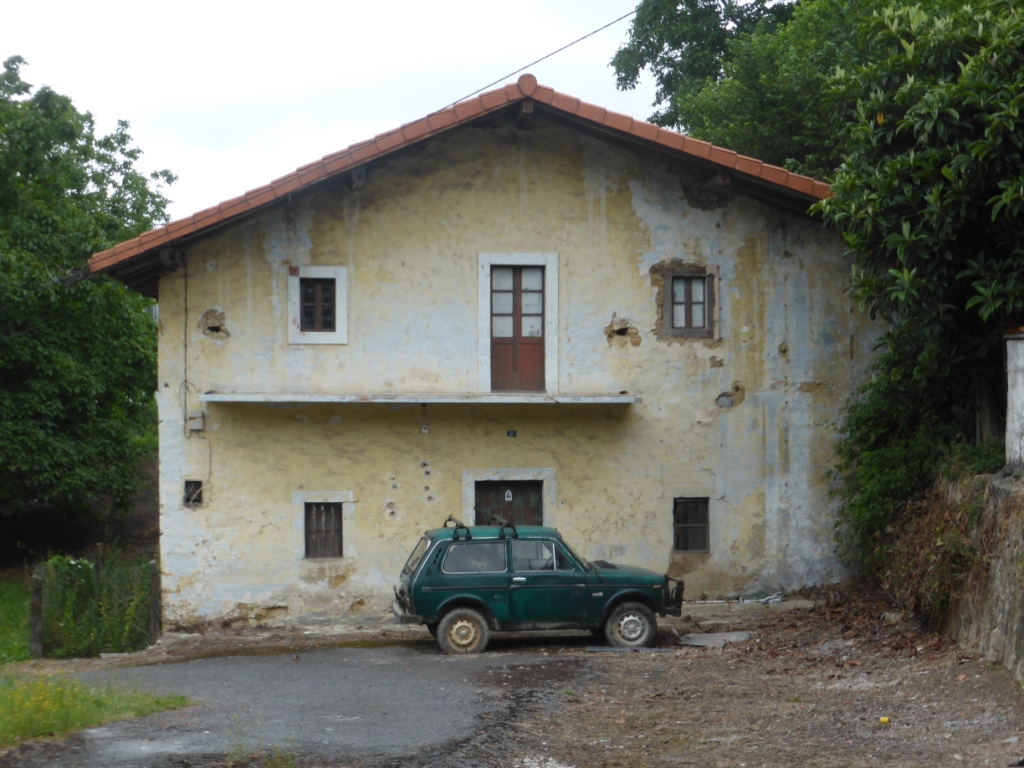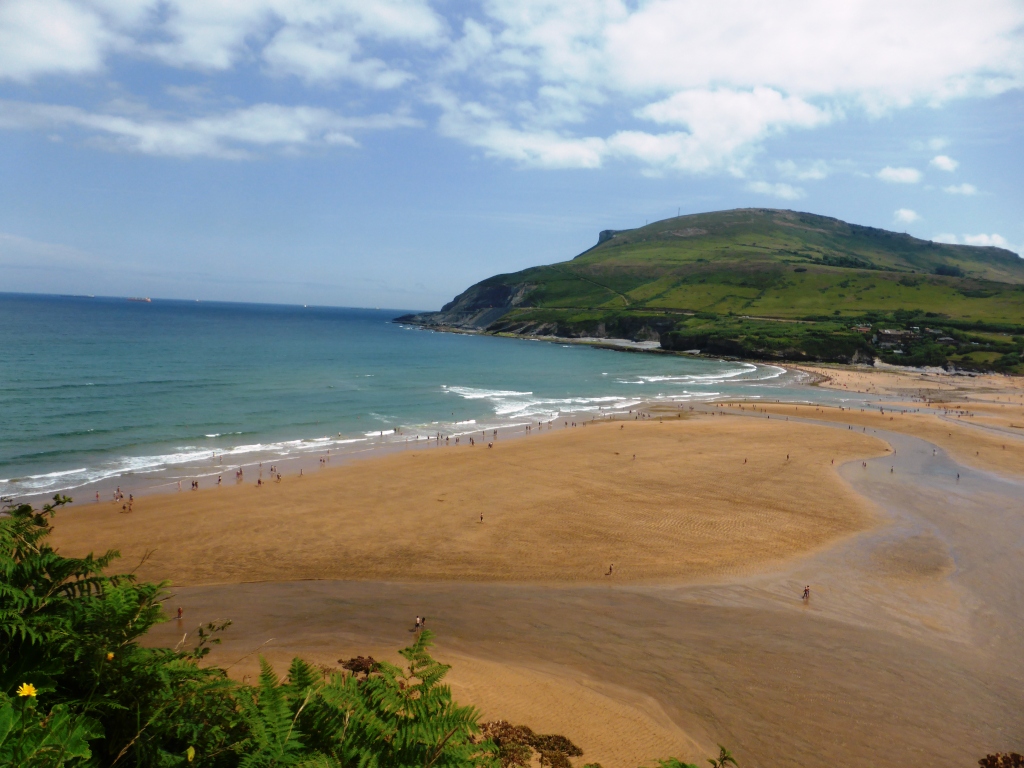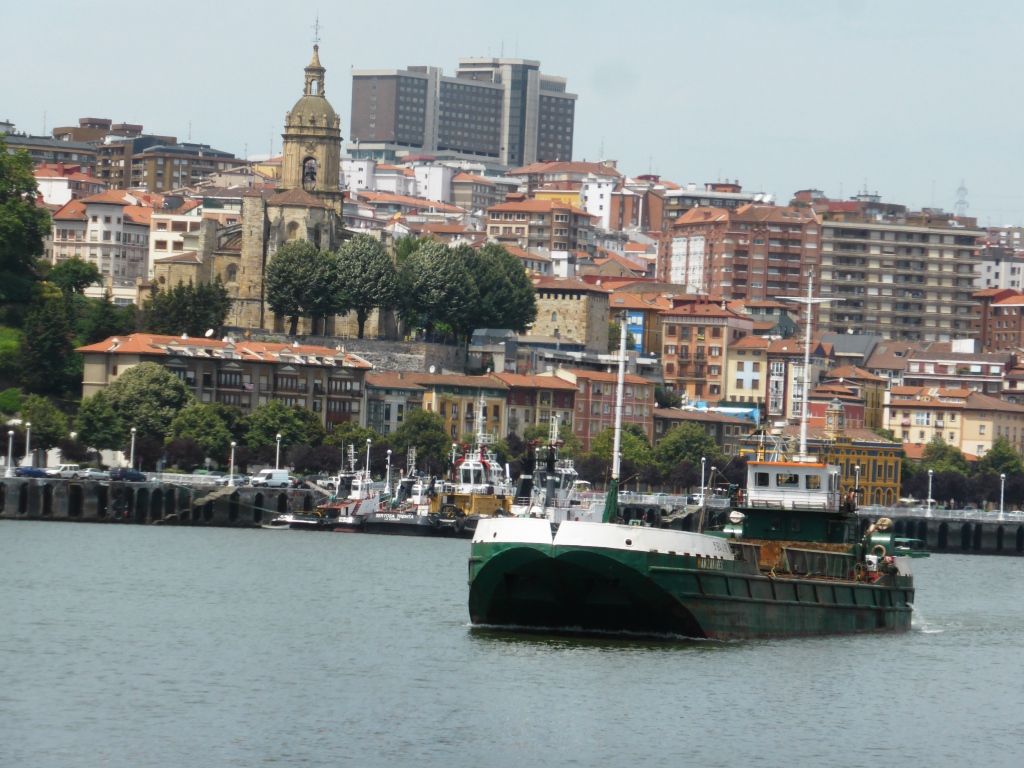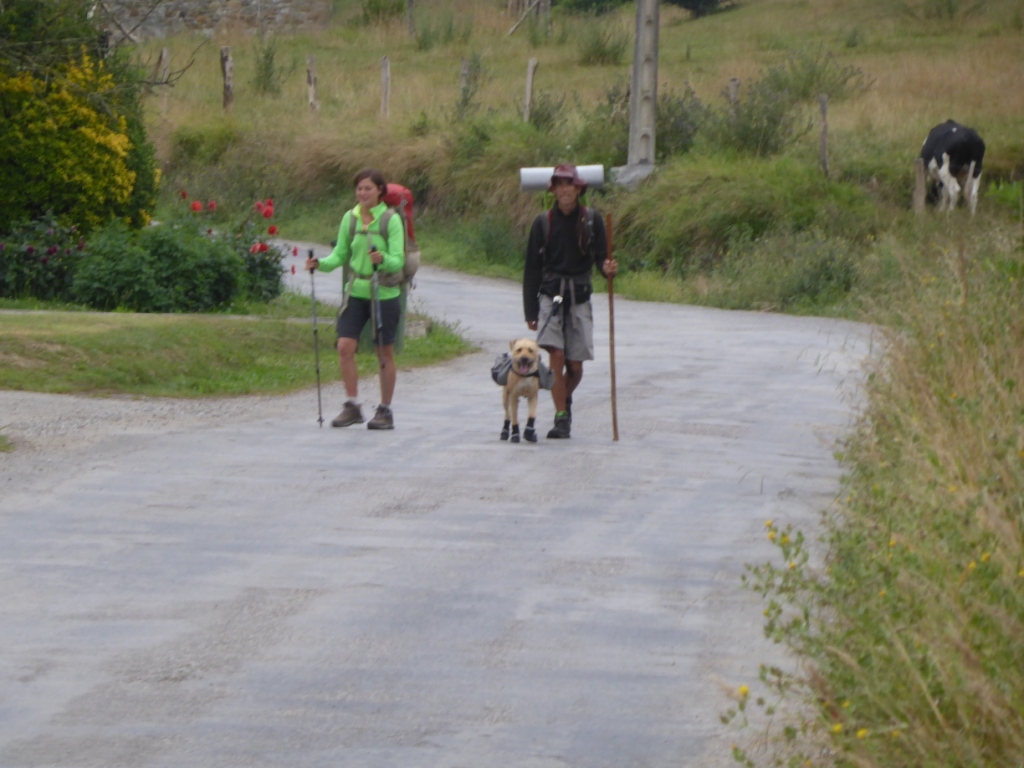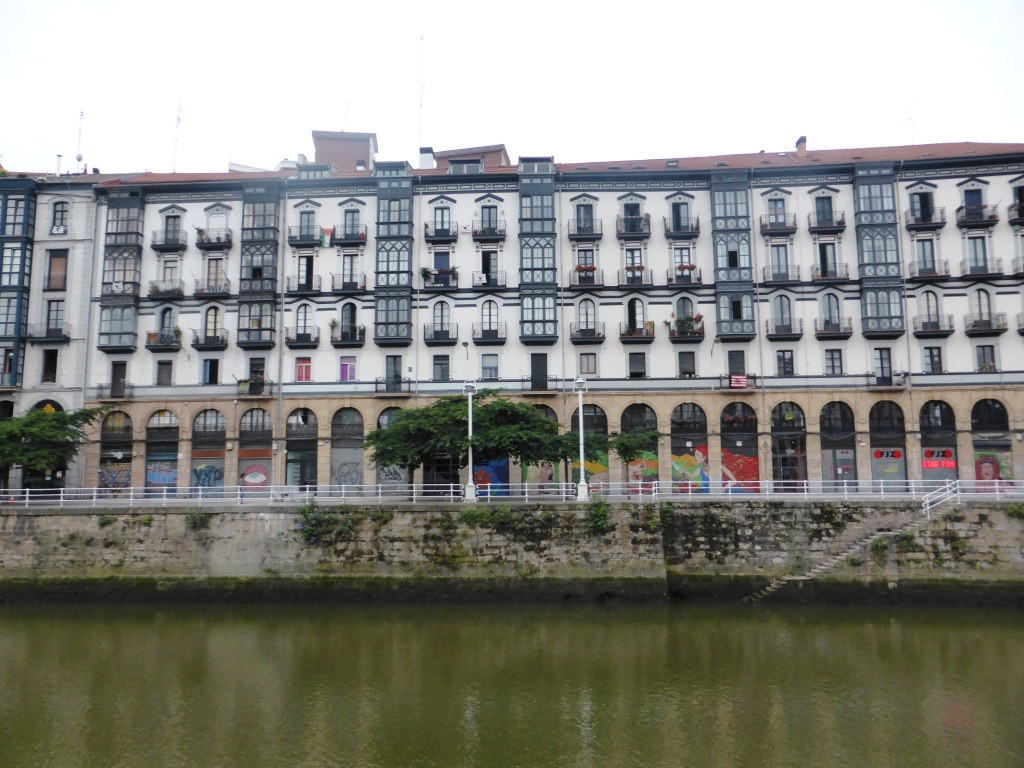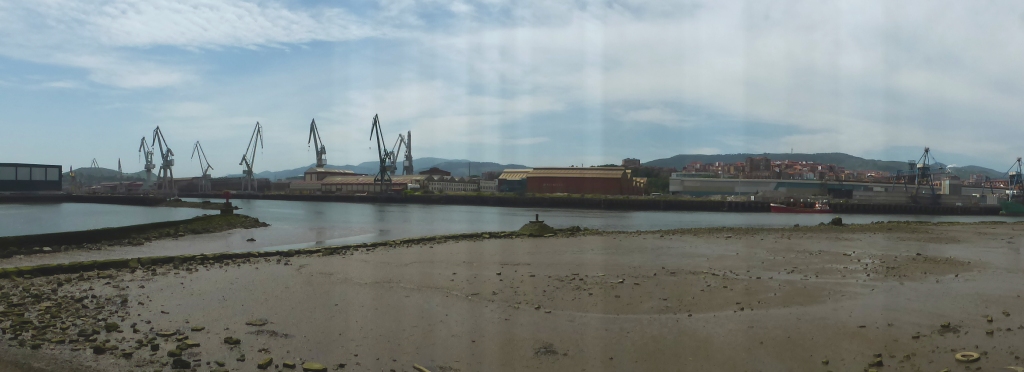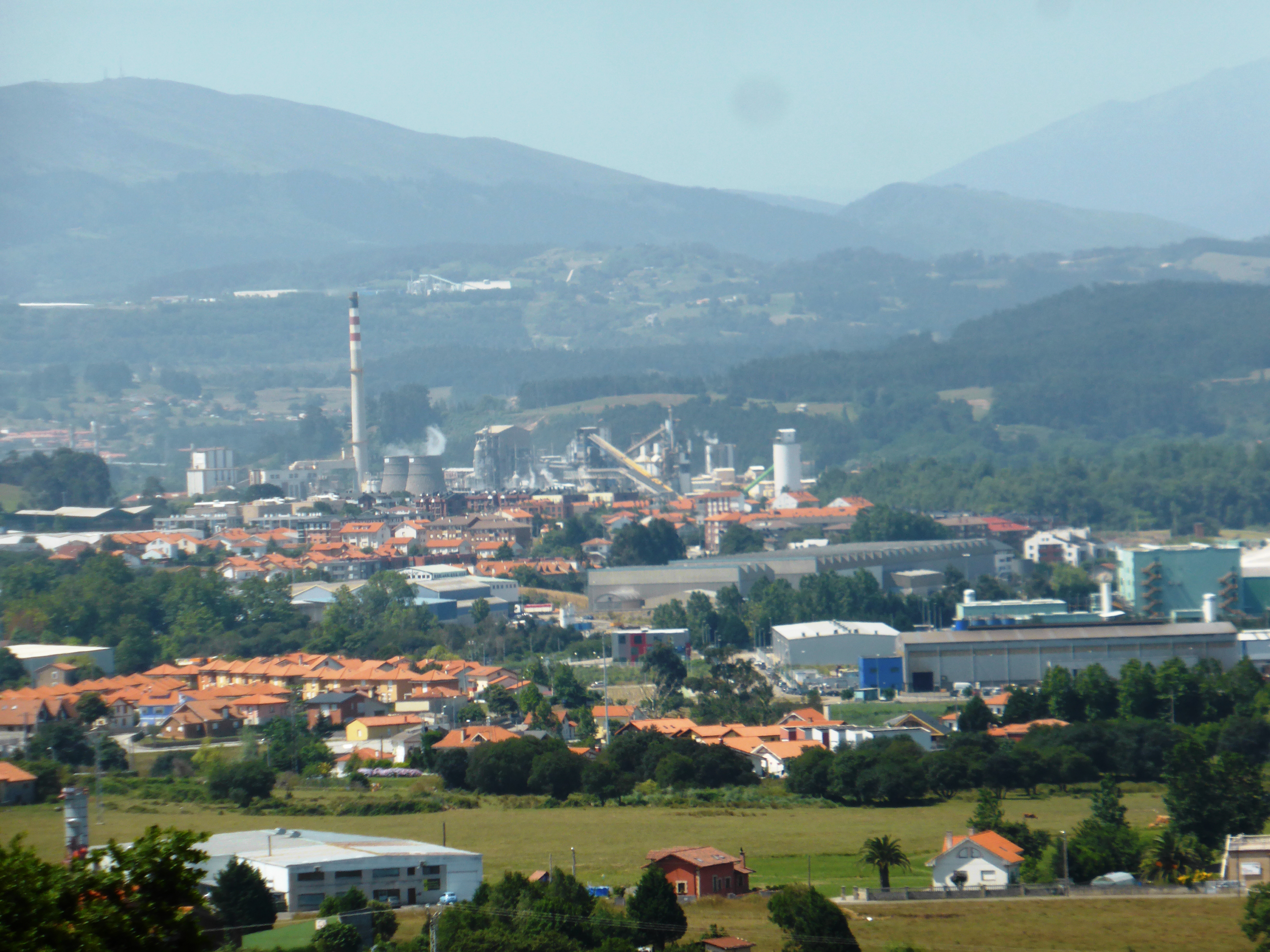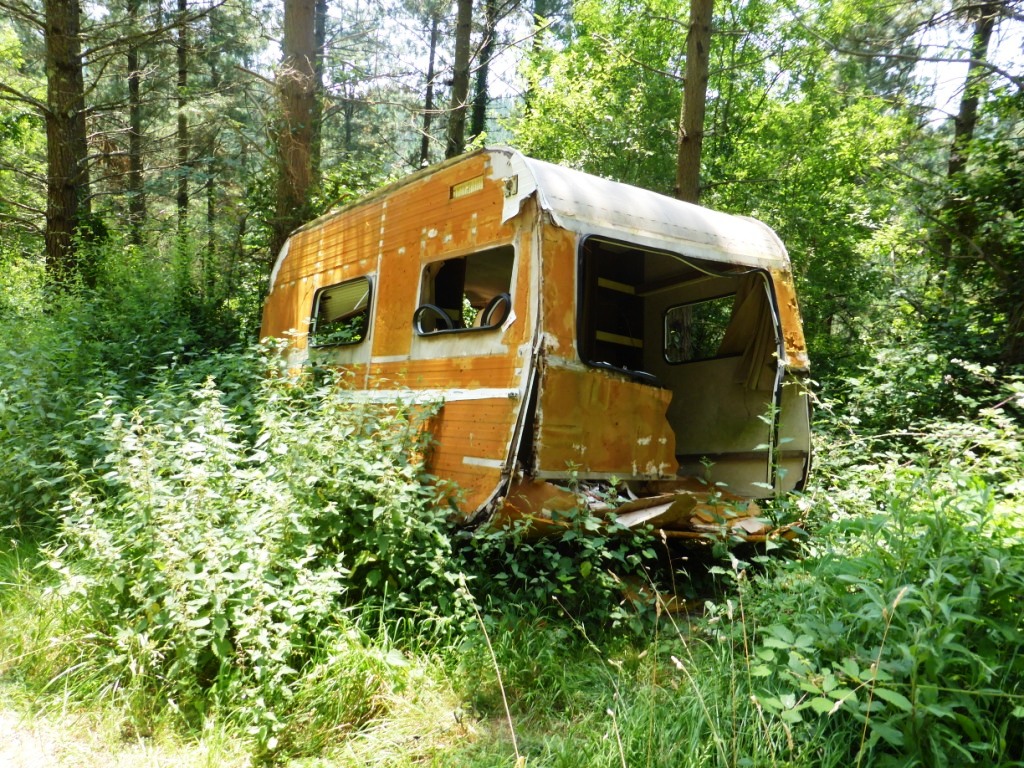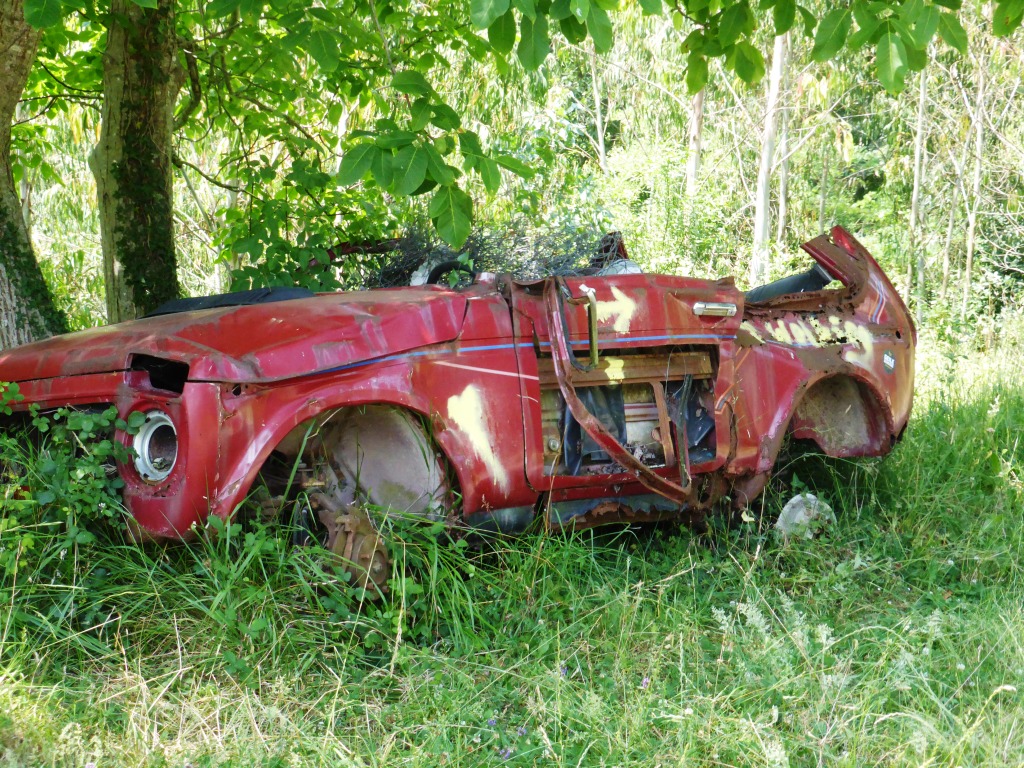Camino del Norte: The Basque Country.
Bilbao.
When I first visited Bilbao in the early 70’s I thought it should have been twinned with Glasgow. Both invisible through the smog, the only difference was that instead of smoky black fog Bilbao hid under a blanket of exotic red pollution: and both, down river, have beautiful seaside resorts. In those days Largs still claimed my heart.
The Basques.
The people here speak a language isolate, which means that they speak a language almost totally unrelated to any other in the world. This confers a clear identity on the Basque people which few can dispute unlike the Catalans whose language is a Latin derivative with much in common with French and Spanish. They don’t make any fuss about it and mix in, naturally, words and phrases in Castellano as we, in Britain, absorb Americanisms. Perhaps we are both resigned to the inevitability that xenophobia is not the way forward.
I have loved the Basque country ever since my student days when I spent my summers with a wonderful British/Basque family in Lekeitio. I could never confuse the Basques with Spaniards unlike many who find it easy to call Scots, English, even though Basques are Spaniards – and Scots are not English.
[mapsmarker layer=”49″]
I have no doubt that my alcoholism began in Lekeitio in its superb fiesta at the beginning of September. I learned 24 hour drinking and relished it without a thought that it would change my life. I held the firm conviction that I was not at all an addictive type. Yet I feel I have a lot to thank the Basques for.
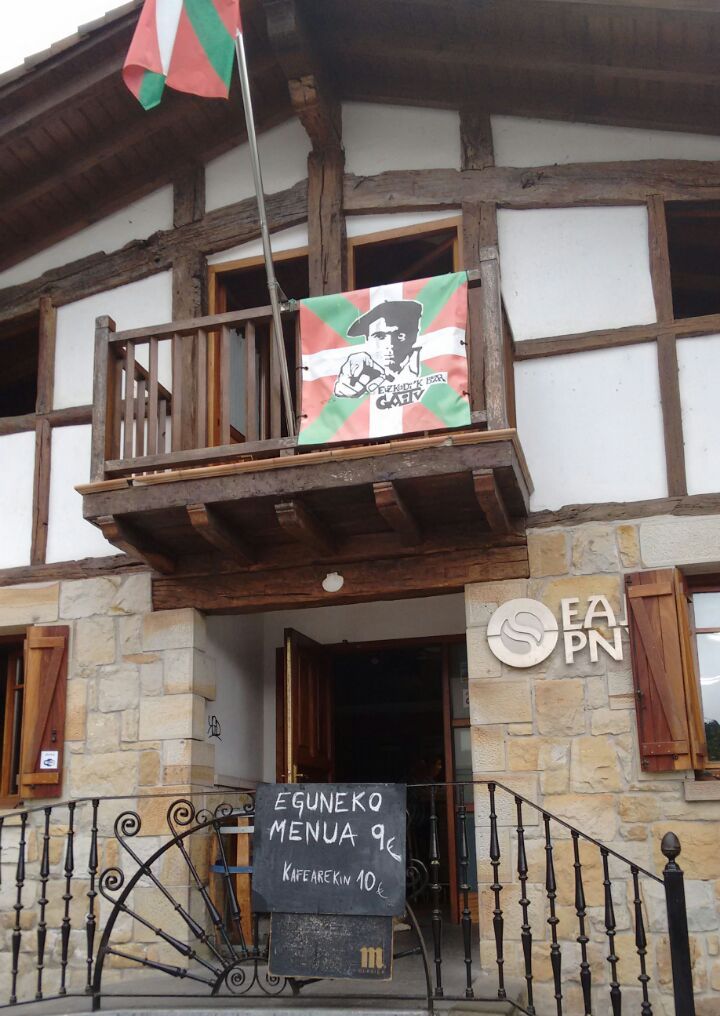
A Basque bar in a village which has men imprisoned for terrorism. They continue campaigning for them to be imprisoned in the Basque country rather than being held in jails far from their families.
These people feel that they were treated unjustly by Franco, the dictator who died in 1975. Some distrust and dislike survives between the Basques and the central government in Madrid. Injustices ripple on through lives and generations. Yet we seem slow to understand that when we fight and die and inflict suffering and loss it is always about issues or property or ideals which, with time, fade into insignificance.
A long pilgrimage opens up space in the heart and soul where resentment and grudges seem to evaporate leaving only compassion and love which unite rather than divide. Injustice and suffering are part of a much bigger process in life. On the long Caminos, so much falls away as unimportant. Compassion can dissolve injustice in a teardrop.
I met many young Basques on this Camino who impressed me with their intense integrity and comprehensive humour. They have a maturity which is perhaps a reflection of the special autonomy granted to the region when democracy came to Spain. They are doing well.
A busy Camino.
Returning in July to this Camino, I found that the number of pilgrims had doubled and increased every day. There is plenty of private accommodation soaking up the overspill from the public albergues which fill up early in the afternoon. Many joined the Camino in Bilbao which, today, is a beautiful city.
I skipped around the city, choosing instead the industrial route past the airport which was a few kilometres shorter. So I missed out on the Culture but saw how thriving, humming and working Bilbao is, relishing the hissing of steam valves opening and the metalic thud of moving newly forged steel.
I don’t like cities anymore but I do relish walking through them and the Camino del Norte offers San Sebastian, Bilbao, Santander, Gijón and Aviles. Only San Sebastian lacks heavy industry. I marvel at ants, at nesting birds and goats in trees and just as much marvel at our own industry and ingenuity, our co-operation with each other in giant projects and the harmony within which millions of people can live so closely packed into cities.
The Camino del Norte in July became so packed, however, that sleeping on the floor was commonplace. The ratio of loos to people worsened until, on my final day, in Luiña, we had two toilets for seventy of us. I was not able to sleep outside in the rain because I had left my bivy bag behind in an albergue before Santander, so I decided to take yet another break in this Camino until the summer flood descended.
Each Camino is different.
This became the Camino I couldn’t complete – so far. My body is worn out and I can’t seem to manage more than ten days at a time. I had chosen a busy route at a busy time of year. The long pilgrimage became a series of short ones, solitude was found only in rare moments and places and the difficulty of the terrain demanded a concentration which seemed to eat away at those prolonged hours of contemplation which I had so enjoyed on my earlier Caminos.

